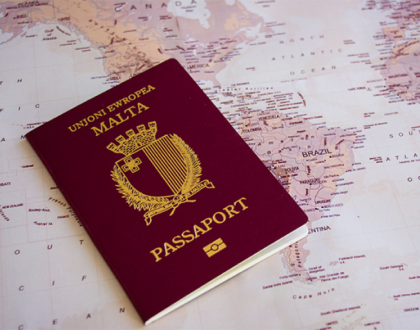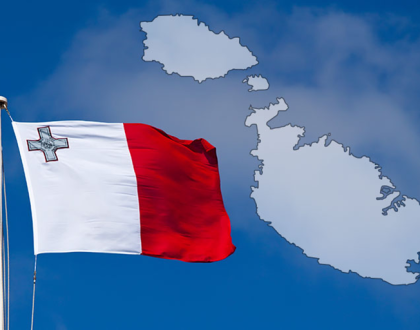Malta’s Economic Indicators in Finance

Economy enthusiasts and finance professionals often rely on a plethora of economic indicators to gauge the financial health and stability of a country. Pertaining to Malta, understanding the key economic indicators can provide valuable insights into the country's economic performance and future prospects. From GDP growth rate to unemployment figures, these indicators play a crucial role in shaping financial decisions and strategies. In this blog post, we explore deep into the necessary economic indicators in Malta and how they impact the financial landscape.
Overview of Malta's Economy
Geographic and Political Impact on Malta's Economy
Any analysis of Malta's economy must take into account its unique geographic location and political landscape. Situated in the heart of the Mediterranean Sea, Malta's strategic position has historically made it a hub for trade and commerce. The country's stability as a parliamentary republic and member of the European Union also play a significant role in shaping its economic opportunities and challenges.
Key Industries Driving Economic Growth
For a small island nation like Malta, key industries such as tourism, manufacturing, financial services, and information technology are instrumental in driving economic growth. These sectors not only contribute significantly to the country's GDP but also provide employment opportunities for its population. The government has made strategic investments and efforts to develop these industries further to sustain and expand the economy.
Growth in these key sectors has been bolstered by Malta's pro-business policies, skilled workforce, and attractive regulatory environment for foreign investment. The tourism industry, in particular, has seen substantial growth due to Malta's rich history, beautiful landscapes, and favorable climate, attracting millions of tourists each year. Similarly, the financial services sector benefits from Malta's status as a reputable international financial center within the EU, providing services to clients globally.
Malta's Financial Landscape
Financial Institutions and Banking Sector
It is important to understand the key role that financial institutions and the banking sector play in Malta's economy. The banking sector in Malta is robust, with both local and international banks offering a wide range of financial services to individuals and businesses alike.
Effects of EU Membership on Malta's Economy
Any discussion about Malta's economy must include the significant impact of its membership in the European Union. Since joining the EU in 2004, Malta has experienced increased trade opportunities, economic growth, and access to EU funding and support programs.
As a member of the EU, Malta has also benefited from being part of a single market with free movement of goods, services, capital, and people. This has boosted Malta's export market and attracted foreign investment, contributing to the overall growth and stability of the Maltese economy.
Analysis of Economic Indicators
Gross Domestic Product (GDP)
Little can give as clear an overview of a country's economic performance as its GDP. In Malta, GDP growth has been steady, showcasing a resilient economy despite global uncertainties.
Unemployment Rate and Labor Market Trends
Unemployment in Malta has been on a downward trend, reflecting a healthy labor market. The island nation has focused on creating opportunities in various sectors, leading to positive employment prospects.
To ensure sustainable growth, Malta is diligently working towards maintaining a balanced labor market and reducing unemployment rates further.
Inflation Dynamics and Consumer Price Index (CPI)
Domestic inflation dynamics and the CPI play a crucial role in depicting the cost of living and overall economic stability in Malta.
Economic policies are designed to manage inflation rates effectively, ensuring that consumer prices remain stable and growth is sustainable.
Foreign Direct Investment (FDI) and its Impact
Gross FDI inflows continue to bolster Malta's economy, indicating a favorable investment environment. FDI has contributed significantly to job creation and sector diversification, strengthening the country's economic foundation.
Analysis of economic indicators in Malta reveals a resilient economy with strategic policies driving growth and stability. Factors like GDP, unemployment rates, inflation dynamics, and FDI collectively shape Malta's economic landscape, positioning it as a competitive player in the global market.
Challenges and Opportunities
Economic Diversification Strategies
Many challenges and opportunities exist in Malta's economy, especially when it comes to diversification strategies. With a heavy reliance on traditional sectors like tourism and manufacturing, Malta must seek ways to diversify its economy to ensure long-term stability and growth. Introducing new industries such as fintech and blockchain technology can help drive innovation and attract foreign investment.
Prospects of the Maltese Economy in Post-Brexit Europe
Any changes in the European landscape post-Brexit present both challenges and opportunities for Malta. While the country may face disruptions in trade and investment flows, there is also the chance to strengthen ties with non-EU markets and solidify its position as a financial hub. By adapting its economic policies and regulations, Malta can position itself as an attractive destination for businesses looking to access both EU and non-EU markets.
A strategic response to the evolving European market can position Malta as a key player in attracting foreign investment and fostering economic growth. By leveraging its unique position as an English-speaking country in the EU, Malta can differentiate itself from other member states and capitalize on emerging opportunities in a post-Brexit Europe.
Final Words
Considering all points, understanding Malta's economic indicators in finance is crucial for investors and policymakers alike. By analyzing factors such as GDP growth rates, inflation, and unemployment figures, stakeholders can make informed decisions that are important for the economic well-being of the country. Keeping a close eye on these indicators will help ensure stability and growth in Malta's financial sector.
FAQs:
What are some key economic indicators to analyze Malta's financial health?
GDP growth rate, unemployment figures, inflation dynamics, and foreign direct investment (FDI) inflows are crucial indicators for assessing Malta's economic performance.
How does Malta's geographic location influence its economy?
Situated in the Mediterranean Sea, Malta's strategic position historically fosters trade and commerce, impacting its economic opportunities and challenges.
Which industries drive economic growth in Malta?
Key sectors such as tourism, manufacturing, financial services, and information technology are instrumental in propelling Malta's economic growth.
What role does EU membership play in Malta's economy?
EU membership has facilitated increased trade opportunities, economic growth, access to funding, and a single market for Malta, enhancing its economic stability.
What are the challenges and opportunities for Malta's economy post-Brexit?
Post-Brexit, Malta faces challenges in trade and investment flows but also has opportunities to strengthen ties with non-EU markets and solidify its position as a financial hub.
Recommended Posts

Legal Win for Malta’s Citizenship Program
October 4, 2024

Why iGaming Brands Choose Malta
October 4, 2024

Malta Ranks Fifth Among European Islands
October 4, 2024



